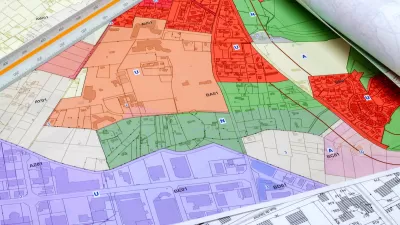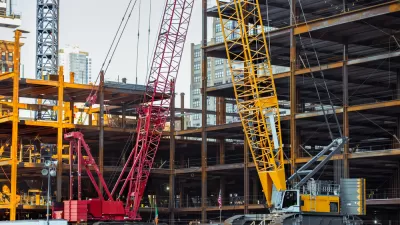Diana Lind argues that transportation regulations needlessly stifle competition that could "benefit our intertwined problems of high prices, congestion and slow service."
Citing recent efforts to crackdown on low cost bus operators in New York, which she appreciates for driving up competition for intercity bus passengers and driving down prices, Lind argues that "the way we regulate transportation in cities results in a paucity of
inexpensive and safe transit options that could save us all time, money
and environmental costs."
And the obstacles to filling the gaps in America's transportation networks is not just limited to the intercity bus market. "In many cities around the country, people are marooned by public transit
that is often unreliable, infrequent, unsafe or just nonexistent...Regulation has zeroed out private alternatives to public transit in
cities, forcing people to take transit into their own hands - or, more
accurately, into their own cars," writes Lind.
"To be sure, the idea of deregulated transportation sounds bad.
Deregulated transportation in many developing countries is notoriously
unsafe and can have grave consequences. But there needs to be a middle
ground between rolling death traps and a transportation system that is
killing our economy."
FULL STORY: Deregulate Our Streets!

Planetizen Federal Action Tracker
A weekly monitor of how Trump’s orders and actions are impacting planners and planning in America.

Maui's Vacation Rental Debate Turns Ugly
Verbal attacks, misinformation campaigns and fistfights plague a high-stakes debate to convert thousands of vacation rentals into long-term housing.

San Francisco Suspends Traffic Calming Amidst Record Deaths
Citing “a challenging fiscal landscape,” the city will cease the program on the heels of 42 traffic deaths, including 24 pedestrians.

Defunct Pittsburgh Power Plant to Become Residential Tower
A decommissioned steam heat plant will be redeveloped into almost 100 affordable housing units.

Trump Prompts Restructuring of Transportation Research Board in “Unprecedented Overreach”
The TRB has eliminated more than half of its committees including those focused on climate, equity, and cities.

Amtrak Rolls Out New Orleans to Alabama “Mardi Gras” Train
The new service will operate morning and evening departures between Mobile and New Orleans.
Urban Design for Planners 1: Software Tools
This six-course series explores essential urban design concepts using open source software and equips planners with the tools they need to participate fully in the urban design process.
Planning for Universal Design
Learn the tools for implementing Universal Design in planning regulations.
Heyer Gruel & Associates PA
JM Goldson LLC
Custer County Colorado
City of Camden Redevelopment Agency
City of Astoria
Transportation Research & Education Center (TREC) at Portland State University
Jefferson Parish Government
Camden Redevelopment Agency
City of Claremont





























